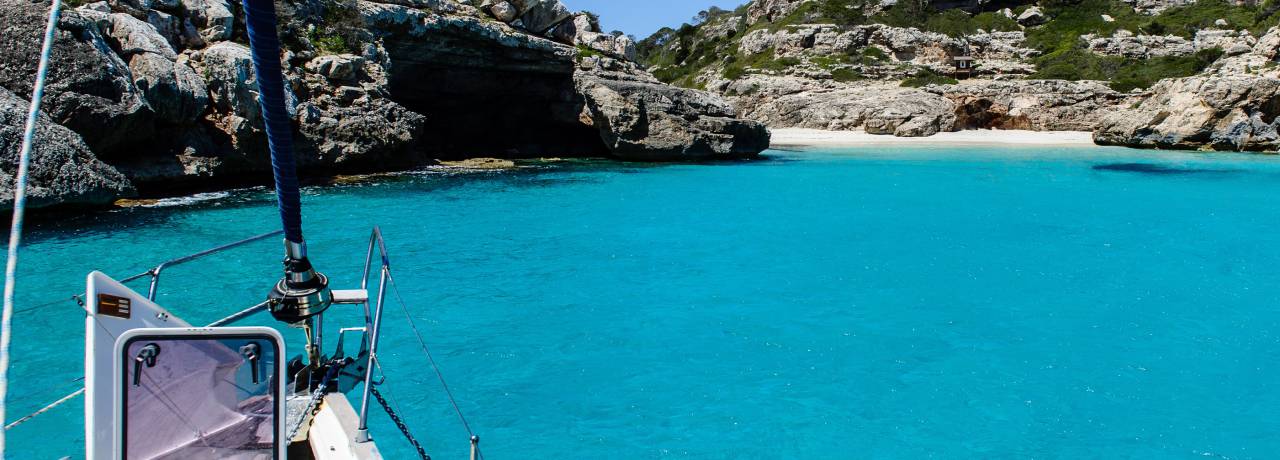
More info about sailing in Spain
Climate
There are three main types of climate on the Spanish Coast:
-
Mediterranean Coast climate with hot, dry summers and mild, dry winters. The average temperature in the winter ranges between 5°C and 15°C, while going up to 26°C and 35°C during the summer. The sea temperature amounts to around 14°C in February and 25°C in August.
-
Northern Coast climate is colder and much rainier, although the summer tends to be mild and sunny. The average temperature in the winter ranges between 5°C and 10°C, and between 15°C and 23°C during the summer. The sea temperature amounts to around 10°C in February and 22°C in August.
-
Canary Islands climate is tropical and desertic, moderated by the sea and in summer by the trade winds, so temperature practically never goes below 15ºC or beyond 30ºC. Some areas also have a subtropical humid climate. Water temperature is moderate all year long.
When sailing to Spain, one of the most reliable sources for weather information and forecast is accuweather.com, which offers detailed and geographically specific information about any spot in Spain. Another reliable data source is aemet.com.
Winds
The Spanish weather is fairly stable but it can also be prone to winds. Tarifa (Cádiz), the most southern point of Spain, has excellent all year-round wind conditions, and it is one of the main destinations for windsurfers from all over the world.
Here are the main Spanish winds:
-
Borrasca - a thunderstorm or violent squall, especially in the Mediterranean and the Northern Part of Spain. It usually comes from NW, W.
-
Chubasco - a rapid and strong downpour, it starts up very quickly but stops in a matter of minutes. It is very common throughout the country. It doesn’t come from a specific direction.
-
Levante - a hot wind from E, NE, that can be especially strong in the area of the Strait of Gibraltar, where the local conditions increase its power and speed.
-
Lebeche - another warm wind from SW, this one coming from the Sahara, bringing elevated temperatures and sand from the desert. In the Canary Islands area, it is also known as calima.
-
Galerna - stormy, hot and very humid NW wind that arises unexpectedly on the North Coast, especially during the summer season. Wind gusts can go up to more than 100 kilometers per hour.
-
Tramontana - originated in the French Central Massif and the Pyrenees, it is a N wind that blows strongly over the Balearic Islands and some parts of Catalonia. Sometimes it can reach speeds close to two hundred kilometers per hour.
Depths
The coast around the Balearic Islands is shallower than in the rest of the country, since it is not in the open Ocean like the North Coast and Canary Islands.
Tides
On the Mediterranean Coast, there are practically no tides. The Cantabrian coast of Spain has a tidal range of 1 meter. On the Atlantic Coast (Galicia, Canary Islands) tidal range can go up to 2,8 m.
Waves
In the Mediterranean, waves occur primarily because of the wind blowing. Normally, the heights of waves in the Mediterranean range between 0.5 and 1.5 m, and very rarely exceed 5 m.
However, the Atlantic and Cantabric coasts are a whole different thing. There, waves can easily go beyond 10 meters during the winter. Actually, the biggest wave recorded in Spain was appeared near to Galicia, and was 27,81 meters high. Of course, that makes the northern facade of the Spanish coast a place to go for any surfer specialized in big waves.
Sea currents
Sea currents occur under the influence of winds, differences in pressure, temperature, and salinity. The currents of the Mediterranean can hardly be noticed, but this changes on the Atlantic side of the Spanish coast. The Galician coast is under the influence of cold currents all year long, but the more east you go, the warmer water you’ll get.